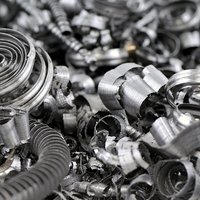Why Europe Needs a Circular Approach to Critical Raw Material
Report on the EU Critical Raw Materials Act: Circular economy increases security of supply of raw materials for the green transformation

Report on the EU Critical Raw Materials Act: Circular economy increases security of supply of raw materials for the green transformation

CLG Europe's Materials & Products Taskforce has released a new report in partnership with the Wuppertal Institute on the urgent need for more circularity in the EU critical raw materials market. The report, Embracing circularity: A pathway for strengthening the Critical Raw Materials Act, is a direct response to the EU's Critical Raw Materials Act (CRMA) published in March 2023.
Authors of the report claim circularity is far more than just recycling – it also involves looking at how to keep materials in the system more effectively and for longer. The report maintains that this aspect of circularity is not sufficiently addressed by the current CRMA proposal.
Centring around three key materials – aluminium (bauxite and magnesium), lithium, and rare earth elements (REE), the report builds on evidence-based research. It includes circular case studies from businesses such as Ball and Volvo Cars and provides recommendations to policymakers.
Eliot Whittington, Chief Systems Change Officer, CISL said "Global competition is heating up around key materials and the climate is heating up in response to our carbon emissions, but by adopting a more circular economy Europe can turbocharge its response to both challenges in one go. As the EU negotiates its Critical Raw Materials Act, it should seize the opportunity to scale up circularity. European policymakers should look to learn from how leading businesses across sectors are already implementing a wide range of circular economy solutions in critical raw materials use, and facilitate the finance flows and flexible, targeted policies needed to take these approaches to scale – accelerating the EU's journey to climate neutrality and strategic autonomy."
Raw materials play a crucial role in the green transition, in the manufacturing of solar panels, wind turbines and electric cars. As a result, demand in the EU is set to soar over the coming years – lithium demand in particular is expected to be 12 times higher in the EU by 2030 and, globally, 90 times higher by 2050. But with 24 of the materials listed in the CRMA imported from China, plus the environmental damage and the societal impact of more domestic mines in Europe, the importance of the EU’s strategic autonomy has come into sharper focus.
The report suggests a circular economy in the EU would help to increase security of supply for critical raw materials. Circular practices require a more deliberate shift towards a reuse model, which could play a key role in managing supply.
Prof. Dr. Manfred Fischedick, President and Scientific Managing Director of the Wuppertal Institute, said "Russia's war on Ukraine and the COVID-19 pandemic have highlighted Europe's high vulnerability – especially in the supply of raw materials, which today is largely import-based. In principle, the EU has the potential to become more independent. However, this would entail higher raw material prices, and mining activities inevitably encroach on nature and landscapes. Circular economy is the better alternative. It can help provide needed materials efficiently and keep extraction of primary raw materials to a minimum. If policymakers set a clear framework for this, it can be the basis for high security of supply and a greener and socially responsible economy."
The report showcases the challenges, opportunities and business best practices of embracing more circular practices in CRM use, using case studies from members of the Materials & Products Taskforce and other identified company stakeholders along the value chains of lithium, aluminium and REE. From materials technology company Umicore, who have developed battery recycling technology and have capacity for 7,000 tonnes per year, to aluminium packaging giant Ball's target to achieve 90 per cent recycling and an 85 per cent recycled content target by 2030.
The report’s recommendations to policy-makers include how to:
- Implement a more comprehensive circular approach within the CRMA, rather than focusing only on recycling.
- Set a flexible approach towards circularity within the CRMA that recognises the need for a case-by-case approach.
- Deploy forward-looking infrastructure to enable a systems-wide circular economy.
- Set a clear overall vision on a European Industrial Strategy that combines circularity, carbon neutrality and further sustainability aspects.
- Create more environmentally and socially sustainable supply chains by diversifying supply chains and promoting responsible mining practices.
- Implement financial incentives and support schemes to ensure faster the commercial viability of a shift towards green technologies.
Launch of the report
CLG Europe's Materials & Products Taskforce and Wuppertal Institute's report on the Critical Raw Materials Act is launched today, 17 July 2023, in the European Parliament. The event is hosted by Sara Matthieu MEP, Shadow Rapporteur, ENVI Committee on the CRMA.
The underlying study was carried out by the University of Cambridge Institute for Sustainability Leadership (CISL) in collaboration with the Wuppertal Institute. The report was commissioned by the CLG Europe’s Taskforce for climate neutral and circular materials and products.
Joint Press Release
Wuppertal Institute for Climate, Environment and Energy
Responsible for content: Prof. Dr.-Ing. Manfred Fischedick, President and Scientific Managing Director
Contact: Christin Hasken, Head of Communications
Tel.: +49 202 2492-187
Email: christin.hasken@wupperinst.org
Scientific contact
Michael Ritthoff, Senior Researcher in the Material Loops Research Unit
Tel.: +49 202 2492-207
E-Mail: michael.ritthoff@wupperinst.org
University of Cambridge Institute for Sustainability Leadership
Contact: Maeve Campbell, Media Manager
E-Mail: maeve.campbell@cisl.cam.ac.uk
